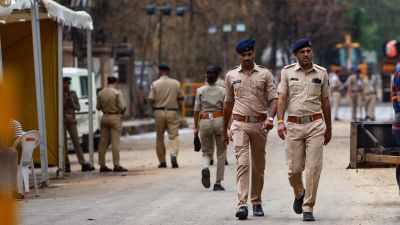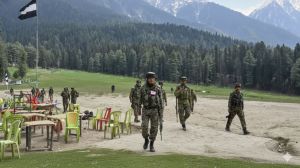Security net for us and them
The Unorganised Sector Workers8217; Social Security Bill was listed for consideration and passing in the Rajya Sabha this week.

The Unorganised Sector Workers8217; Social Security Bill was listed for consideration and passing in the Rajya Sabha this week. It has not been taken up so far and now with Parliament adjourned till Monday, it is likely to be discussed next week. What are the main provisions in the bill? What has been its career so far? M.R. Madhavan has the answers
8226;What is the purpose of the Unorganised Sector Workers8217; Social Security Bill?
This bill enables the central and state governments to formulate welfare schemes for workers in the unorganised sector. These schemes would provide benefits in areas such as life and disability insurance, health and maternity benefits, old age protection, provident fund, employment injury benefits, housing, educational schemes for children, skill upgradation, funeral assistance and old age homes. The schemes may be financed by central and state governments and by employers and employees.
8226;Does the government need such legislation to introduce benefit schemes?
No. Even before this bill, the government has introduced several schemes 8212; including the recently announced Aam Aadmi Bima Yojana, which provides death and disability insurance cover for rural landless households. Indeed, the bill itself lists 11 schemes which are currently operational. For any scheme, the government needs parliamentary approval only for sanctioning the budget. This would be a requirement even if this social security bill is passed. However, the bill enables the government to launch schemes which would be partly funded by employers and employees 8212; this condition requires legislative approval.
8226;What would happen to existing welfare schemes of various states?
The schemes introduced through this bill will not affect the existing schemes of any state that may be more beneficial to unorganised sector workers.
8226;What is the background of this bill?
In 2004, the central government set up the National Commission for Enterprises in the Unorganised Sector NCEUS chaired by Arjun Sengupta to study the status of workers in the unorganised sector. This commission made a number of recommendations to address social security and minimum conditions of work for both agricultural and non-agricultural workers in the unorganised sector. It suggested two bills 8212; one for each sector.
8226;Is it based on NCEUS recommendations?
Not entirely. This bill considers only social security and not conditions of work. Instead of different measures for agricultural and non-agricultural workers, it provides similar benefits for all workers. Importantly, while the NCEUS recommended that certain benefits should be guaranteed by legislation, this bill only enables the government to formulate schemes. The benefits are not guaranteed by law.
8226;Is there any major innovation in the bill?
It introduces portable smart cards to deliver benefits. Every unorganised sector worker above the age of 14 years will be eligible to get a smart card. The benefits will be transferred through the card. For example, in the case of health insurance, the payment for the treatment would be debited to the card, and the amount directly transferred to the hospital.
8226;Who is an unorganised sector worker?
The bill defines an unorganised sector worker as a self-employed worker or employed in an enterprise employing less that 10 workers, or working for a employer in his home. There would be a wage limit notified by the central and state governments.
8226;How will such workers get the smart card?
The worker, who must be over 14 years of age, would make a self-declaration confirming his or her status as an unorganised sector worker. This declaration would be part of an application to the district administration for registration. The district administration shall issue a portable smart card carrying a unique identification number.
8226;Has any official body examined the bill?
The Parliamentary Standing Committee has examined the bill. The committee has stated that the bill 8220;in its present form will not be able to meet the aspirations of the millions of workers in the unorganised sector8221;. It has recommended several amendments including provision of statutory right for national minimum benefits, coverage within specified time frame and constitution of a National Social Security Fund. Given that these amendments change the very nature and structure of the bill, the committee has proposed a substitute bill.
8226;Is there any political disagreement on the bill?
The Left parties want a number of major changes in the bill. The CPM in its Coimbatore Party Congress resolution demanded incorporation of the changes recommended by the Parliamentary Standing Committee. The trade unions are also not satisfied with the bill. The Left parties were initially demanding two separate bills for farm workers and non-farm workers, as recommended by the NCEUS. They are now agreeable to one bill, if it is in line with the Standing Committee8217;s recommendations. Most of the demands have centred on the method of financing various social security schemes and a legal guarantee for certain minimum benefits.
The writer heads research at PRS Legislative Research, New Delhi madhavanprsindia.org
- 01
- 02
- 03
- 04
- 05































